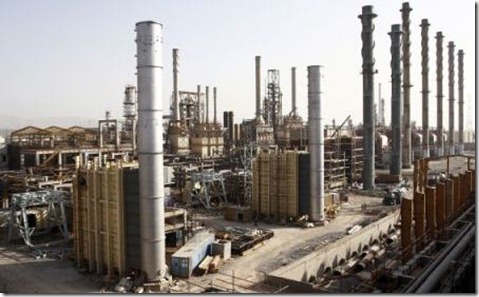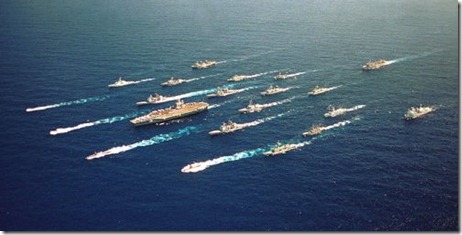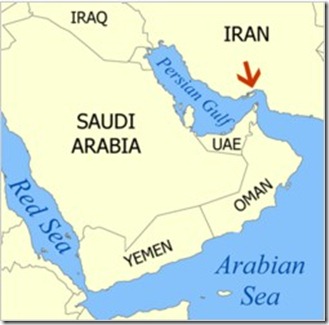Foreign Minister Kevin Rudd has said Australia will follow the European Union in banning Iranian oil imports, after talks with his British counterpart in London. Iran has been reported in the press widely to have made a threat to block the strait of hormuz through which oil passes through to the rest of the world. Blocking this could result in a oil price hike affecting us immediately with increase in prices to fill and drive our cars.
China and India Oil imports with Iran
A leading state-run Chinese daily warned on Monday that Moscow and Beijing were seriously concerned over US attempts to go to war with Iran, IANS reported from Beijing.
The EU and the United States are pushing major importers of Iranian oil such as China, Japan, South Korea, India and Turkey to join the economic embargo. The US has been trying to pursue India and china to lessen their reliance on oil exports from Iran and putting pressure on Iran. China and INDIA have major oil imports agreements from Iran and India recently had payment routing problems to Iran for payments for oil that was routed through US based firms.
Some 65 percent of Iranian exports go to Asia. This step joins Russia and Iran’s announcement to begin trading in their own domestic currencies rather than use the US dollar – a reserve currency. China has rebuffed Western entreaties to reduce oil imports from Iran. When one Chinese oil firm, Zuhai Zhenrong, was recently placed on the financial sanctions list for trading with Iran, Beijing reacted furiously and conveyed "strong dissatisfaction and adamant opposition".
India has decided not to heed the West on abandoning Iranian oil imports, and it is proceeding to negotiate alternative payment processing mechanisms to continue trading with Tehran. Currently, India depends on the volatile Middle East for 70% of its oil and gas imports.
A senior member of Iran’s parliament said on Monday the Islamic Republic would close the entry point to the Gulf ( Strait of Hormuz ) if new sanctions block its oil exports. This news has been reported widely in online and News media with the affect of it creating a atmosphere of distrust towards Iran and creating a scenario of justifying an attack on Iran.
Any bid by Iran to block the Strait of Hormuz at the entrance to the Gulf, through which 20 per cent of the world’s oil exports pass could result in a big oil price spike and ensuing chaos and distrust between countries.
What are these sanctions imposed by the EU ?
EU nations have formally adopted an unprecedented set of sanctions against Tehran – which include a bloc-wide embargo on Iranian oil
Iran’s blocking threat of the strait of Hormuz was a reaction to the European Union decision to impose sanctions on the Iranian central bank.But with no defined central power figure in Iran , it cannot be confirmed whether this threat is legitimate and backed by the powers that run Iran or as specified just a comment made by a member of the parliament which has been blown out of proportion , for the selfish propaganda needs of some western countries that are safeguarding their interests.
The EU embargo or sanctions on Iranian oil exports, amounts to the most significant package of sanctions yet agreed. They are also likely to impose a partial freeze on assets held by the Iranian Central Bank in the EU. The reasons for these sanctions is aid to arise from concern that Iran is developing nuclear weapons under the guise of a nuclear energy programme.
The strait of hormuz and its importance !
On an average day in 2011, about 14 tankers carrying 17 million barrels (2,700,000 m3) of crude oil passed out of the Persian Gulf through the Strait of hormuz. This represents 35% of the world’s seaborne oil shipments, and 20% of oil traded worldwide. More than 85 percent of these crude oil exports went to Asian markets, with Japan, India, South Korea, and China representing the largest destination
The strait at its narrowest is 54 kilometres (34 mi) wide. It is the only sea passage to the open ocean for large areas of the petroleum-exporting Persian Gulf and is one of the world’s most strategically important passageways through which major part of the oil exports to the world passes through.
Tensions near strait of hormuz
US Miliatary carrier Abraham Lincoln’s entry into the Gulf came in defiance of an explicit warning from Iran. Earlier this month, General Ataollah Salehi, commander of the country’s armed forces, threatened to respond with "full force" if any US carrier ventured into the region’s waters. "We don’t have the intention of repeating our warning, and we warn only once," he said.
USS Abraham Lincoln, a nuclear-powered carrier capable of embarking 90 aircraft, passed through this channel and entered the Gulf without incident on Sunday. HMS Argyll, a Type 23 frigate from the Royal Navy, was one of the escort vessels making up the carrier battle-group. A guided missile cruiser and two destroyers from the US Navy completed the flotilla, along with one warship from the French navy.
On Sunday, six naval warships including Abraham Lincoln that is based in those waters from the US and the UK started to patrol the Straits of Hormuz in a show of strength. The straits could be the chokepoint for global oil flows if Iran decides to take the battle to oil-dependent countries and stops oil tankers here. This could send oil prices soaring and would be a killer blow to the sluggish global economy.
With this current situation looking like a economic war brought on by US , EU and IRAN, there is always the danger of it escalating with dangerous consequences. China’s Prime Minister Wen Jiabao was has expressed concerns in this context of rising tensions over fresh Western sanctions against Iran and its consequences for energy security in Asia.
Links:
Europe buys oil from – http://www.sbs.com.au/news/article/1621003/Factbox–Whose-oil-does-the-EU-buy-









Leave a Reply
You must be logged in to post a comment.